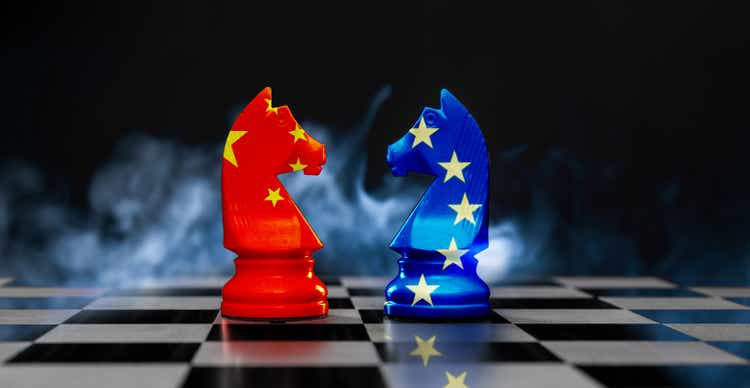
baona
Chinese EV stocks are trading defensively Friday after the European Union hit all battery electric vehicles imported from China with steep tariffs effective immediately.
The action — though expected — rattled shares of XPeng (NYSE:XPEV), Li Auto (NASDAQ:LI), NIO (NYSE:NIO) and BYD (BYDDF, BYDDY), and reverberated through stocks of non-China based manufacturers who are also impacted by the tariff.
After a nine-month investigation, the European Commission found that manufacturers who make EVs in China benefited from very generous, and uncompetitive subsidies from the government. The subsidies undercut EU-made vehicles and swelled the market share enjoyed by Chinese EVs from 3.9% in 2020 to 25% at the end of 2023.
“Based on the investigation, the Commission has concluded that the BEV value chain in China benefits from unfair subsidisation (sic), which is causing a threat of economic injury to EU BEV producers,” the commission said.
To adjust for the unfair advantage, the EU imposed “countervailing duties” as much as of 37.6% on vehicles exported into Europe from China. “Sampled” Chinese producers – those who cooperated in the EU probe – include SAIC (37.6%), BYD (BYDDF, BYDDY) (17.4%), and Geely (19.9%), on top of the 10% already in place.
Other BEV producers in China which cooperated in the investigation but were not sampled are subject to a 20.8% weighted average duty on imported cars. Non-cooperating companies face a 37.6% duty.
The duties will apply until a final vote is taken in November.
Volkswagen (VWAGY, VWAPY), BMW (OTCPK:BMWYY), and Tesla (TSLA) will face tariffs of 20.8% on their Chinese-made EVs, although those figures could be adjusted based on recent inspections of their Chinese facilities by EU regulators.
The action could trigger retaliatory tariffs on European exports into China, namely on motor vehicle parts, electronic equipment, medicines, and luxury goods.
“This is a naked protectionist act, creating and escalating trade frictions and destroying fair competition in the name of maintaining fair competition” a spokesperson from China’s Ministry of Commerce said earlier in the week, cited by CNBC.
